@import url(https://www.ratisbonne.org.il/bk/wp-content/plugins/siteorigin-panels/css/front-flex.min.css); #pgc-4108-0-0 , #pgc-4108-0-2 { width:10%;width:calc(10% – ( 0.9 * 30px ) ) } #pgc-4108-0-1 { width:80%;width:calc(80% – ( 0.2 * 30px ) ) } #pl-4108 #panel-4108-0-1-0 { } #pl-4108 .so-panel { margin-bottom:30px } #pl-4108 .so-panel:last-child { margin-bottom:0px } #pg-4108-0.panel-no-style, #pg-4108-0.panel-has-style > .panel-row-style { -webkit-align-items:flex-start;align-items:flex-start } @media (max-width:780px){ #pg-4108-0.panel-no-style, #pg-4108-0.panel-has-style > .panel-row-style { -webkit-flex-direction:column;-ms-flex-direction:column;flex-direction:column } #pg-4108-0 .panel-grid-cell { margin-right:0 } #pg-4108-0 .panel-grid-cell { width:100% } #pgc-4108-0-0 , #pgc-4108-0-1 { margin-bottom:30px } #pl-4108 .panel-grid-cell { padding:0 } #pl-4108 .panel-grid .panel-grid-cell-empty { display:none } #pl-4108 .panel-grid .panel-grid-cell-mobile-last { margin-bottom:0px } }
Twenty-first Sunday in Ordinary Time
@import url(https://www.ratisbonne.org.il/bk/wp-content/plugins/siteorigin-panels/css/front-flex.min.css); #pgc-4078-0-0 , #pgc-4078-0-2 { width:10%;width:calc(10% – ( 0.9 * 30px ) ) } #pgc-4078-0-1 { width:80%;width:calc(80% – ( 0.2 * 30px ) ) } #pl-4078 #panel-4078-0-1-0 { } #pl-4078 .so-panel { margin-bottom:30px } #pl-4078 .so-panel:last-child { margin-bottom:0px } #pg-4078-0.panel-no-style, #pg-4078-0.panel-has-style > .panel-row-style { -webkit-align-items:flex-start;align-items:flex-start } @media (max-width:780px){ #pg-4078-0.panel-no-style, #pg-4078-0.panel-has-style > .panel-row-style { -webkit-flex-direction:column;-ms-flex-direction:column;flex-direction:column } #pg-4078-0 .panel-grid-cell { margin-right:0 } #pg-4078-0 .panel-grid-cell { width:100% } #pgc-4078-0-0 , #pgc-4078-0-1 { margin-bottom:30px } #pl-4078 .panel-grid-cell { padding:0 } #pl-4078 .panel-grid .panel-grid-cell-empty { display:none } #pl-4078 .panel-grid .panel-grid-cell-mobile-last { margin-bottom:0px } }
Twentieth Sunday in Ordinary Time
@import url(https://www.ratisbonne.org.il/bk/wp-content/plugins/siteorigin-panels/css/front-flex.min.css); #pgc-4048-0-0 , #pgc-4048-0-2 { width:10%;width:calc(10% – ( 0.9 * 30px ) ) } #pgc-4048-0-1 { width:80%;width:calc(80% – ( 0.2 * 30px ) ) } #pl-4048 #panel-4048-0-1-0 { } #pl-4048 .so-panel { margin-bottom:30px } #pl-4048 .so-panel:last-child { margin-bottom:0px } #pg-4048-0.panel-no-style, #pg-4048-0.panel-has-style > .panel-row-style { -webkit-align-items:flex-start;align-items:flex-start } @media (max-width:780px){ #pg-4048-0.panel-no-style, #pg-4048-0.panel-has-style > .panel-row-style { -webkit-flex-direction:column;-ms-flex-direction:column;flex-direction:column } #pg-4048-0 .panel-grid-cell { margin-right:0 } #pg-4048-0 .panel-grid-cell { width:100% } #pgc-4048-0-0 , #pgc-4048-0-1 { margin-bottom:30px } #pl-4048 .panel-grid-cell { padding:0 } #pl-4048 .panel-grid .panel-grid-cell-empty { display:none } #pl-4048 .panel-grid .panel-grid-cell-mobile-last { margin-bottom:0px } }
Nineteenth Sunday in Ordinary Time
@import url(https://www.ratisbonne.org.il/bk/wp-content/plugins/siteorigin-panels/css/front-flex.min.css); #pgc-4010-0-0 , #pgc-4010-0-2 { width:10%;width:calc(10% – ( 0.9 * 30px ) ) } #pgc-4010-0-1 { width:80%;width:calc(80% – ( 0.2 * 30px ) ) } #pl-4010 #panel-4010-0-1-0 { } #pl-4010 .so-panel { margin-bottom:30px } #pl-4010 .so-panel:last-child { margin-bottom:0px } #pg-4010-0.panel-no-style, #pg-4010-0.panel-has-style > .panel-row-style { -webkit-align-items:flex-start;align-items:flex-start } @media (max-width:780px){ #pg-4010-0.panel-no-style, #pg-4010-0.panel-has-style > .panel-row-style { -webkit-flex-direction:column;-ms-flex-direction:column;flex-direction:column } #pg-4010-0 .panel-grid-cell { margin-right:0 } #pg-4010-0 .panel-grid-cell { width:100% } #pgc-4010-0-0 , #pgc-4010-0-1 { margin-bottom:30px } #pl-4010 .panel-grid-cell { padding:0 } #pl-4010 .panel-grid .panel-grid-cell-empty { display:none } #pl-4010 .panel-grid .panel-grid-cell-mobile-last { margin-bottom:0px } }
The 18th Sunday of Ordinary Time
@import url(https://www.ratisbonne.org.il/bk/wp-content/plugins/siteorigin-panels/css/front-flex.min.css); #pgc-3989-0-0 , #pgc-3989-0-2 { width:10%;width:calc(10% – ( 0.9 * 30px ) ) } #pgc-3989-0-1 { width:80%;width:calc(80% – ( 0.2 * 30px ) ) } #pl-3989 #panel-3989-0-1-0 { } #pl-3989 .so-panel { margin-bottom:30px } #pl-3989 .so-panel:last-child { margin-bottom:0px } #pg-3989-0.panel-no-style, #pg-3989-0.panel-has-style > .panel-row-style { -webkit-align-items:flex-start;align-items:flex-start } @media (max-width:780px){ #pg-3989-0.panel-no-style, #pg-3989-0.panel-has-style > .panel-row-style { -webkit-flex-direction:column;-ms-flex-direction:column;flex-direction:column } #pg-3989-0 .panel-grid-cell { margin-right:0 } #pg-3989-0 .panel-grid-cell { width:100% } #pgc-3989-0-0 , #pgc-3989-0-1 { margin-bottom:30px } #pl-3989 .panel-grid-cell { padding:0 } #pl-3989 .panel-grid .panel-grid-cell-empty { display:none } #pl-3989 .panel-grid .panel-grid-cell-mobile-last { margin-bottom:0px } }
17th Sunday in Ordinary Time
@import url(https://www.ratisbonne.org.il/bk/wp-content/plugins/siteorigin-panels/css/front-flex.min.css); #pgc-3967-0-0 , #pgc-3967-0-2 { width:10%;width:calc(10% – ( 0.9 * 30px ) ) } #pgc-3967-0-1 { width:80%;width:calc(80% – ( 0.2 * 30px ) ) } #pl-3967 #panel-3967-0-1-0 { } #pl-3967 .so-panel { margin-bottom:30px } #pl-3967 .so-panel:last-child { margin-bottom:0px } #pg-3967-0.panel-no-style, #pg-3967-0.panel-has-style > .panel-row-style { -webkit-align-items:flex-start;align-items:flex-start } @media (max-width:780px){ #pg-3967-0.panel-no-style, #pg-3967-0.panel-has-style > .panel-row-style { -webkit-flex-direction:column;-ms-flex-direction:column;flex-direction:column } #pg-3967-0 .panel-grid-cell { margin-right:0 } #pg-3967-0 .panel-grid-cell { width:100% } #pgc-3967-0-0 , #pgc-3967-0-1 { margin-bottom:30px } #pl-3967 .panel-grid-cell { padding:0 } #pl-3967 .panel-grid .panel-grid-cell-empty { display:none } #pl-3967 .panel-grid .panel-grid-cell-mobile-last { margin-bottom:0px } }
The Fifteenth Sunday in Ordinary Time
@import url(https://www.ratisbonne.org.il/bk/wp-content/plugins/siteorigin-panels/css/front-flex.min.css); #pgc-3926-0-0 , #pgc-3926-0-2 { width:10%;width:calc(10% – ( 0.9 * 30px ) ) } #pgc-3926-0-1 { width:80%;width:calc(80% – ( 0.2 * 30px ) ) } #pl-3926 #panel-3926-0-1-0 { } #pl-3926 .so-panel { margin-bottom:30px } #pl-3926 .so-panel:last-child { margin-bottom:0px } #pg-3926-0.panel-no-style, #pg-3926-0.panel-has-style > .panel-row-style { -webkit-align-items:flex-start;align-items:flex-start } @media (max-width:780px){ #pg-3926-0.panel-no-style, #pg-3926-0.panel-has-style > .panel-row-style { -webkit-flex-direction:column;-ms-flex-direction:column;flex-direction:column } #pg-3926-0 .panel-grid-cell { margin-right:0 } #pg-3926-0 .panel-grid-cell { width:100% } #pgc-3926-0-0 , #pgc-3926-0-1 { margin-bottom:30px } #pl-3926 .panel-grid-cell { padding:0 } #pl-3926 .panel-grid .panel-grid-cell-empty { display:none } #pl-3926 .panel-grid .panel-grid-cell-mobile-last { margin-bottom:0px } }
The Fourteenth Sunday in Ordinary Time
@import url(https://www.ratisbonne.org.il/bk/wp-content/plugins/siteorigin-panels/css/front-flex.min.css); #pgc-3892-0-0 , #pgc-3892-0-2 { width:10%;width:calc(10% – ( 0.9 * 30px ) ) } #pgc-3892-0-1 { width:80%;width:calc(80% – ( 0.2 * 30px ) ) } #pl-3892 #panel-3892-0-1-0 { margin:0px 0px 50px 0px } #pl-3892 .so-panel { margin-bottom:30px } #pl-3892 .so-panel:last-child { margin-bottom:0px } #pg-3892-0.panel-no-style, #pg-3892-0.panel-has-style > .panel-row-style { -webkit-align-items:flex-start;align-items:flex-start } @media (max-width:780px){ #pg-3892-0.panel-no-style, #pg-3892-0.panel-has-style > .panel-row-style { -webkit-flex-direction:column;-ms-flex-direction:column;flex-direction:column } #pg-3892-0 .panel-grid-cell { margin-right:0 } #pg-3892-0 .panel-grid-cell { width:100% } #pgc-3892-0-0 , #pgc-3892-0-1 { margin-bottom:30px } #pl-3892 .panel-grid-cell { padding:0 } #pl-3892 .panel-grid .panel-grid-cell-empty { display:none } #pl-3892 .panel-grid .panel-grid-cell-mobile-last { margin-bottom:0px } }
The Thirteenth Sunday in Ordinary Time
@import url(https://www.ratisbonne.org.il/bk/wp-content/plugins/siteorigin-panels/css/front-flex.min.css); #pgc-3694-0-0 , #pgc-3694-0-2 { width:10%;width:calc(10% – ( 0.9 * 30px ) ) } #pgc-3694-0-1 { width:80%;width:calc(80% – ( 0.2 * 30px ) ) } #pl-3694 #panel-3694-0-1-0 { } #pl-3694 .so-panel { margin-bottom:30px } #pl-3694 .so-panel:last-child { margin-bottom:0px } #pg-3694-0.panel-no-style, #pg-3694-0.panel-has-style > .panel-row-style { -webkit-align-items:flex-start;align-items:flex-start } @media (max-width:780px){ #pg-3694-0.panel-no-style, #pg-3694-0.panel-has-style > .panel-row-style { -webkit-flex-direction:column;-ms-flex-direction:column;flex-direction:column } #pg-3694-0 .panel-grid-cell { margin-right:0 } #pg-3694-0 .panel-grid-cell { width:100% } #pgc-3694-0-0 , #pgc-3694-0-1 { margin-bottom:30px } #pl-3694 .panel-grid-cell { padding:0 } #pl-3694 .panel-grid .panel-grid-cell-empty { display:none } #pl-3694 .panel-grid .panel-grid-cell-mobile-last { margin-bottom:0px } }
REFLECTIONS ON THE SUNDAY READINGS FOR THE BIRTH OF JOHN THE BAPTIST
@import url(https://www.ratisbonne.org.il/bk/wp-content/plugins/siteorigin-panels/css/front-flex.min.css); #pgc-3587-0-0 , #pgc-3587-0-2 { width:10%;width:calc(10% – ( 0.9 * 30px ) ) } #pgc-3587-0-1 { width:80%;width:calc(80% – ( 0.2 * 30px ) ) } #pl-3587 #panel-3587-0-1-0 { } #pl-3587 .so-panel { margin-bottom:30px } #pl-3587 .so-panel:last-child { margin-bottom:0px } #pg-3587-0.panel-no-style, #pg-3587-0.panel-has-style > .panel-row-style { -webkit-align-items:flex-start;align-items:flex-start } @media (max-width:780px){ #pg-3587-0.panel-no-style, #pg-3587-0.panel-has-style > .panel-row-style { -webkit-flex-direction:column;-ms-flex-direction:column;flex-direction:column } #pg-3587-0 .panel-grid-cell { margin-right:0 } #pg-3587-0 .panel-grid-cell { width:100% } #pgc-3587-0-0 , #pgc-3587-0-1 { margin-bottom:30px } #pl-3587 .panel-grid-cell { padding:0 } #pl-3587 .panel-grid .panel-grid-cell-empty { display:none } #pl-3587 .panel-grid .panel-grid-cell-mobile-last { margin-bottom:0px } }
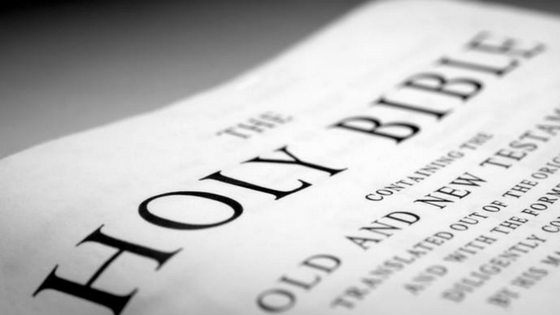
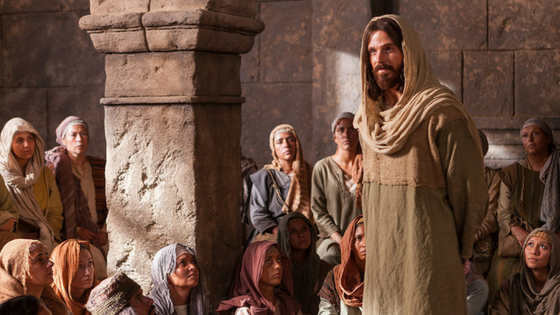
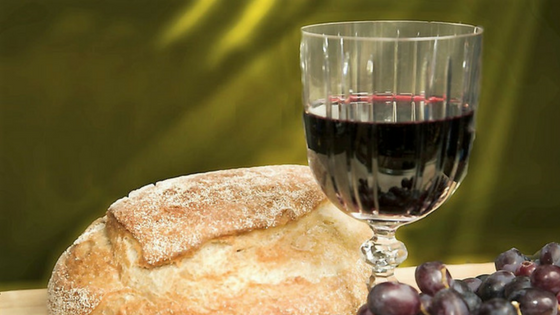
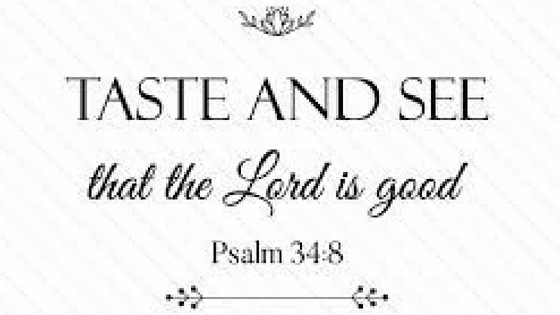
 When compared with other Psalms, the “Wisdom Psalms” including Ps. 34, are “more conscious of God’s presence in daily life”; they convey “reflection and calm strength, with moderation and appreciation for the learning experience” of each day (Stuhlmueller, 180). Urging us to taste and see the goodness of the Lord, these verses of Ps. 34 invite us to probe the quite disparate and somewhat dramatic readings from Kings, Ephesians, and John, to discover how the Psalm holds them together and illumines the insights they offer.
When compared with other Psalms, the “Wisdom Psalms” including Ps. 34, are “more conscious of God’s presence in daily life”; they convey “reflection and calm strength, with moderation and appreciation for the learning experience” of each day (Stuhlmueller, 180). Urging us to taste and see the goodness of the Lord, these verses of Ps. 34 invite us to probe the quite disparate and somewhat dramatic readings from Kings, Ephesians, and John, to discover how the Psalm holds them together and illumines the insights they offer.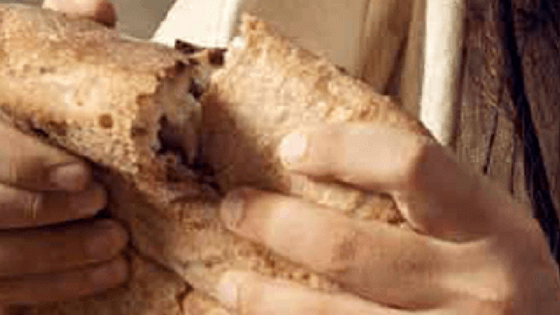
 John uses a distinct vocabulary in the gospel and such words as truth, life, light carry a spiritual significance. Frequently, he has a dialogue as the focus of the teaching in which clarification and strengthening of faith would be possible. The people who had witnessed the multiplication of the loaves now followed Jesus and expected to be fed again. There was much misunderstanding and confusion in how they heard the words that Jesus spoke to them.
John uses a distinct vocabulary in the gospel and such words as truth, life, light carry a spiritual significance. Frequently, he has a dialogue as the focus of the teaching in which clarification and strengthening of faith would be possible. The people who had witnessed the multiplication of the loaves now followed Jesus and expected to be fed again. There was much misunderstanding and confusion in how they heard the words that Jesus spoke to them.
 We hear in the First Reading, Elisha insisted “Give it to the people to eat, for thus says the Lord, They shall eat and there shall be some left over” (2Kg 4:43). This beautiful little tradition prefigures the miraculous feeding of the Gospel. The bread is multiplied to feed the poor. Earlier in (2Kg 4:1-7) tells of the widow who, like the widow of Zarephath (1Kg 17:7-16) has only a small jar of oil, but its amount multiplies so that she is able to fill all the empty vessels she can find. It also echoes something in the Gospel of Mathew, “you have received freely, give it freely”(Mt10:8-10). Elisha, upon seeing the supplies, did not hesitate but commanded the man to give the food so that others may eat.
We hear in the First Reading, Elisha insisted “Give it to the people to eat, for thus says the Lord, They shall eat and there shall be some left over” (2Kg 4:43). This beautiful little tradition prefigures the miraculous feeding of the Gospel. The bread is multiplied to feed the poor. Earlier in (2Kg 4:1-7) tells of the widow who, like the widow of Zarephath (1Kg 17:7-16) has only a small jar of oil, but its amount multiplies so that she is able to fill all the empty vessels she can find. It also echoes something in the Gospel of Mathew, “you have received freely, give it freely”(Mt10:8-10). Elisha, upon seeing the supplies, did not hesitate but commanded the man to give the food so that others may eat.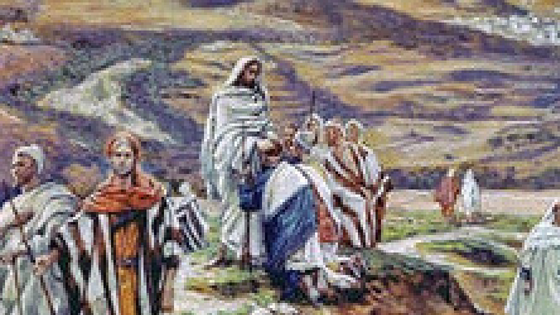
 In this Sunday’s gospel, taken from Mark, we read that Jesus calls the twelve, sends them out two by two and gives them authority over unclean spirits. He orders them to take nothing for the journey except a staff. He instructs them to remain in the house that receives them until they depart.
In this Sunday’s gospel, taken from Mark, we read that Jesus calls the twelve, sends them out two by two and gives them authority over unclean spirits. He orders them to take nothing for the journey except a staff. He instructs them to remain in the house that receives them until they depart.
 The account on the rejection of Jesus is quite extraordinary if compared to how the Lukan account depicted him, that, “Jesus increased in wisdom and in years and in divine and human favor.” [Lk 2:52] In the Markan account, Jesus did not have the esteem of his own people. In fact, he was rejected “and they took offense at him.” [Mk 6:3] They could not see beyond his family line and him being a carpenter. He was too familiar. This is only in reference to the people of his hometown. But, there is also a difficult verse in Mark 3:21. Exploring different translations, we find that there is an obvious translation problem. Who were saying the remark that Jesus was out of his mind, his family and relatives or the people? Mark has indeed effectively conveyed in his storytelling the rejection of Jesus by his contemporaries which creates the creative tension of provoking the reader/listener of the Gospel to make a stand and clarify his/her own beliefs about this person called Jesus Christ.
The account on the rejection of Jesus is quite extraordinary if compared to how the Lukan account depicted him, that, “Jesus increased in wisdom and in years and in divine and human favor.” [Lk 2:52] In the Markan account, Jesus did not have the esteem of his own people. In fact, he was rejected “and they took offense at him.” [Mk 6:3] They could not see beyond his family line and him being a carpenter. He was too familiar. This is only in reference to the people of his hometown. But, there is also a difficult verse in Mark 3:21. Exploring different translations, we find that there is an obvious translation problem. Who were saying the remark that Jesus was out of his mind, his family and relatives or the people? Mark has indeed effectively conveyed in his storytelling the rejection of Jesus by his contemporaries which creates the creative tension of provoking the reader/listener of the Gospel to make a stand and clarify his/her own beliefs about this person called Jesus Christ.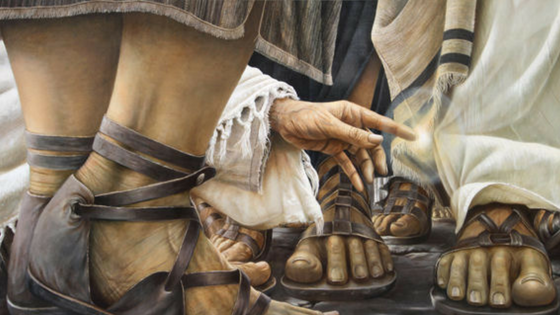
 The readings for the 13th Sunday in Ordinary time remind us that our life is to be lived in awareness that we are fashioned in the image and likeness of God. This understanding leads us to see how in our relationships with all there is, we make manifest God’s nature and presence fully alive, one and whole with all of creation.
The readings for the 13th Sunday in Ordinary time remind us that our life is to be lived in awareness that we are fashioned in the image and likeness of God. This understanding leads us to see how in our relationships with all there is, we make manifest God’s nature and presence fully alive, one and whole with all of creation.
